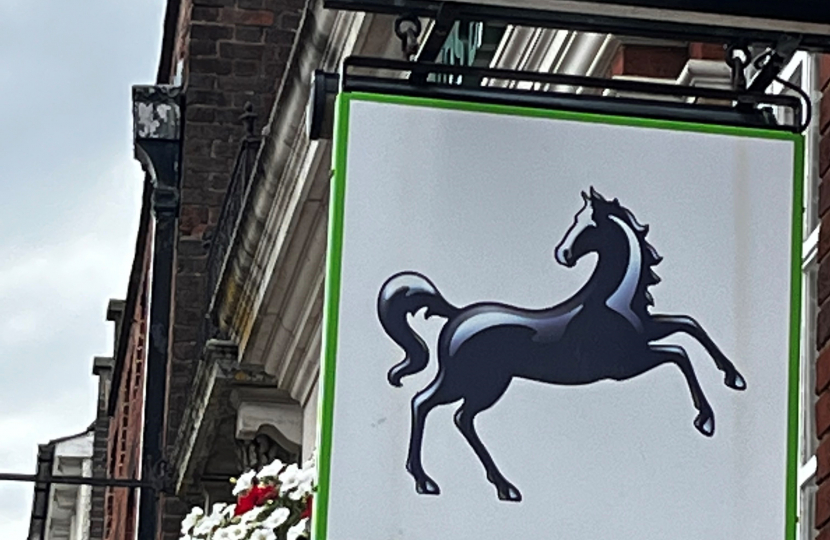
My column for this week's Herald and Post...
In September I wrote in this column about the decline of cash and the dangers of financial exclusion for some of the more vulnerable people in our communities. Following news of more bank branch closures across the country, I’m back to that subject this week.
I remember a couple of years ago when I was complaining to one of the big banks (the one that, as it happens, I am a customer of myself) about a local branch closure, he said to me “When did you last need to visit one of our branches?” It took me a while to call to mind the occasion.
It is an unavoidable reality that with the growth of online, fewer and fewer people are going to a bank branch – and others are using banking services through the Post Office.
But it’s also true that some people – or many people, but only sometimes – still need and want to access banks’ face to face services, such as mortgage advice, locally.
There is just not enough demand – as there used to be – to have a full branch offering for every major bank in every sizeable town. But there isn’t none.
And that’s where an idea called ‘banking hubs’ comes in – where the main banks can share a premises, in places where otherwise there would be no bank branch at all.
A programme is run by Link, to identify places now with no physical banking presence, most in need of one and where it would be most used. For the successful communities, the banks then take it in turns to open the doors of a shared hub to customers on different days of the week.
While we have seen bank branch closures across East Hants, the position has been particularly acute in Whitehill & Bordon. With no branches still open, I have been making the case for such a banking hub in the town. Over the past few months I’ve been working with EHDC to provide evidence to Link to support an application.
As things stand, a town needs to meet a number of criteria. Broadly, these are about the size of the town, how many cash-dependent retailers are in a defined geographical area, the proximity of the nearest high street bank, the percentage of older people, and how cash-reliant the community is.
The last Bordon bank branch closed in August 2017, with the nearest bank now in Alton, and there are many cash-dependent businesses in town.
An assessor has now visited Whitehill & Bordon to measure the town against Link’s criteria. It was a positive meeting but we still have work to do to get over the line. One issue is that the shops are spread over a larger area rather than being concentrated on a single high street.
Whilst we don’t yet have a final decision on whether our application will be successful, I will continue to push the case for a hub to be approved as I’m in no doubt that this will be a real help to residents and local businesses. It will also ensure that access to cash is protected for those that need it most.
The Financial Conduct Authority this week launched a consultation on the hubs scheme (CP23/29: Access to cash (fca.org.uk). I will be making a submission highlighting the need for the criteria to be flexible to take in Whitehill & Bordon’s situation.
And of course this is not only in Whitehill & Bordon. I’m afraid to say that, over time, more places will find themselves in the same position. There is a strong case to be made for many more shared banking facilities in towns like East Hampshire’s.



